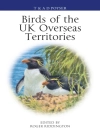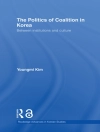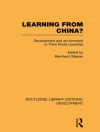In ‘Freedom in Science and Teaching, ‘ Ernst Haeckel presents a compelling manifesto advocating for academic freedom in both scientific inquiry and education. Written in the context of the late 19th-century German intellectual landscape, the book deftly intertwines Haeckel’s rigorous scientific observations with philosophical reflections, challenging dogmatic ideologies that stifle intellectual expression. His prose adopts a clear, persuasive style, combining empirical evidence and ethical arguments to underline the importance of autonomy in scholarly pursuits, particularly in the realms of biology and evolutionary theory. Haeckel’s work serves as a pivotal commentary during a time of significant transition in the scientific community, when the implications of Darwinism were becoming widely recognized yet often contested in conservative circles. Ernst Haeckel, a prominent biologist and philosopher, was instrumental in popularizing Darwinian theory in Germany, and his interdisciplinary approach combined rigorous scientific methodology with holistic perspectives. His deep reverence for nature and the interconnectedness of life forms, as seen in his earlier works, informed his views on the necessity of freedom in education for the advancement of knowledge. Haeckel’s advocacy for reform in the classroom stemmed from his own experiences with the limitations imposed by traditional academic structures. This book is highly recommended for readers interested in the intersection of science, philosophy, and education. Haeckel’s arguments resonate with contemporary issues of academic freedom, making it a relevant and insightful read for educators, scientists, and anyone invested in the pursuit of knowledge free from external constraints.
Circa l’autore
Ernst Haeckel (1834–1919) was a German biologist, naturalist, philosopher, physician, professor, and artist who made significant contributions to the fields of biology and evolution. He was a zealous advocate of Charles Darwin’s theory of evolution and is renowned for his influential work in the morphology and classification of organisms, coining terms such as ‘ecology’ and ‘phylogeny.’ Haeckel’s devotion to Darwinism was instrumental in its widespread acceptance in Europe. His book ‘Freedom in Science and Teaching’ provides a robust defense of the scientific method and educational freedom, arguing against dogmatism in science and education. It reflects Haeckel’s conviction that science should be free of religious and political constraints, and it champions the idea that teaching should present the latest scientific advancements without censorship. Haeckel also published ‘Art Forms in Nature, ‘ a work that showcases his detailed and beautiful illustrations of life forms. His drawings captured the imagination of scientists and laypersons alike, emphasizing the artistic symmetry and organization found in natural organisms. Haeckel’s literary style is characterized by its clarity, fervent scientific advocacy, and sometimes controversial stances on religion and philosophy of science. His work not only contributed to the study of evolutionary biology but also left a lasting impact on the visual arts and culture of his time.












